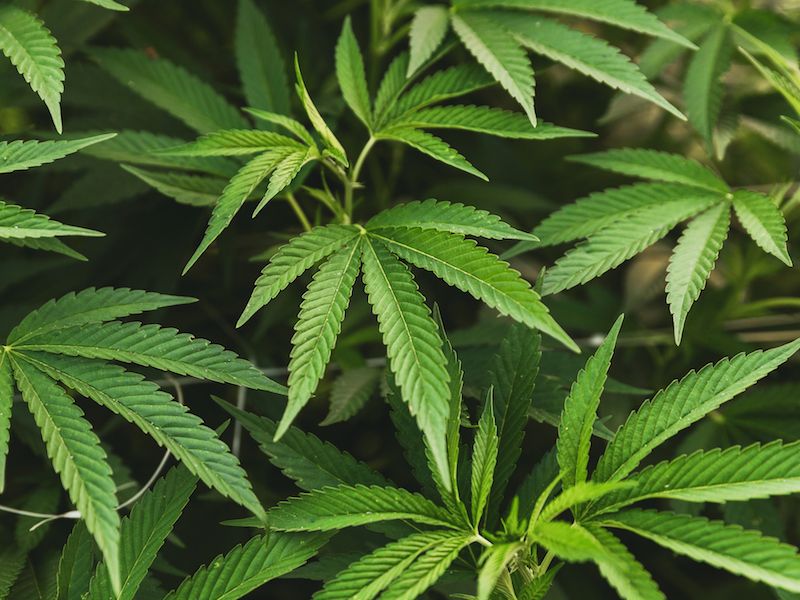
Public opinion surrounding cannabinoids and marijuana have transformed incredibly in the last several decades. THC, cannabinoids, and even marijuana are legal for medical usage in most states. Not as many states have legalized pot for recreational purposes, but even that would have been unthinkable even just ten or fifteen years ago.
A group of compounds derived from the cannabis plant (the marijuana plant, basically) are known as cannabinoids. New things are being uncovered about cannabinoids all the time in spite of their recent legalization in some states. Despite the fact that we now are starting to understand the numerous medical beneficial properties of these compounds, it has been recognized for a while that tinnitus may be activated by cannabinoids.
Cannabinoids Come in Numerous Forms
There are lots of varieties of cannabinoids that can be consumed now. It’s not just pot (or Mary Jane, or grass… look, let’s just all agree right now that marijuana has a significant number of nicknames and move on). Oils, mists, pills and other forms of cannabinoids are currently available.
The forms of cannabinoids available will vary depending on the state, and many of those forms are still technically illegal under federal law if the THC content is more than 0.3%. That’s why many people are very cautious about cannabinoids.
The issue is that we don’t yet know much concerning some of the potential side effects or risks of cannabinoid usage. Some current research into how cannabinoids influence your hearing is a prime example.
Cannabinoids And Your Hearing, Some New Studies
A wide range of ailments and medical conditions are thought to be improved by cannabinoids, whatever you want to call it. Vertigo, nausea, seizures, and more seem to be helped with cannabinoids, according to anecdotally available information. So could cannabinoids help with tinnitus? That’s exactly what scientists resolved to figure out.
Tinnitus might actually be caused by cannabinoid use, as it turns out. Ringing in the ears was described by over 29% of participants after using cannabinoids. And these participants had never had tinnitus symptoms before the study. Furthermore, marijuana users were 20-times more likely to report experiencing tinnitus symptoms after 24 hours.
Additional research indicated that marijuana use could aggravate ear-ringing symptoms in those who already suffer from tinnitus. This basically means, there’s some pretty strong evidence that tinnitus and cannabinoids don’t really mix very well.
How Cannabinoids worsen tinnitus
Your tinnitus can be aggravated by cannabinoids in a couple of tangible ways. The first is that your tinnitus can become more frequent. Cannabinoids can also cause tinnitus symptoms to become more intense. More intense ringing that can be much harder to dismiss can be the result.
The research also appears to suggest that cannabinoids can cause the onset of the initial symptoms of tinnitus. Or, said another way: after you start using cannabinoids you may develop tinnitus symptoms even if you had no symptoms before.
The Causes of Tinnitus Are Unclear
We understand that there’s a connection between tinnitus and certain triggers but we’re still not certain what the actual underlying causes are. It’s evident that cannabinoids can have an impact on the middle ear and tinnitus symptoms. But what’s causing that impact is much less evident.
But we do know that marijuana is one of the few frequently used mood-altering substances that brings about tinnitus (alcohol, for example, hasn’t been demonstrated to have a strong connection with tinnitus).
Of course, we will continue to do the research. Cannabinoids these days come in so many kinds and forms that learning the root link between these substances and tinnitus would help people make better decisions.
The Miracle Cure Beware
There has definitely been no shortage of marketing hype concerning cannabinoids in recent years. That’s partly because mindsets are transforming about cannabinoids (and, it could also mean that people are attempting to get away from opioid use). But cannabinoids can and sometimes do produce unwanted results, according to this new research, and this is particularly true regarding hearing.
You won’t be able to escape all of the cannabinoid enthusiasts and evangelists in the world, the marketing for cannabinoids has been extremely aggressive.
But this new research definitely suggests a strong link between cannabinoids and tinnitus. So regardless of how much advertising you see for CBD oils, if you’re worried about tinnitus, you should probably steer clear of them. The link between cannabinoids and tinnitus symptoms has been pretty securely established by the research, so it’s worth being careful.